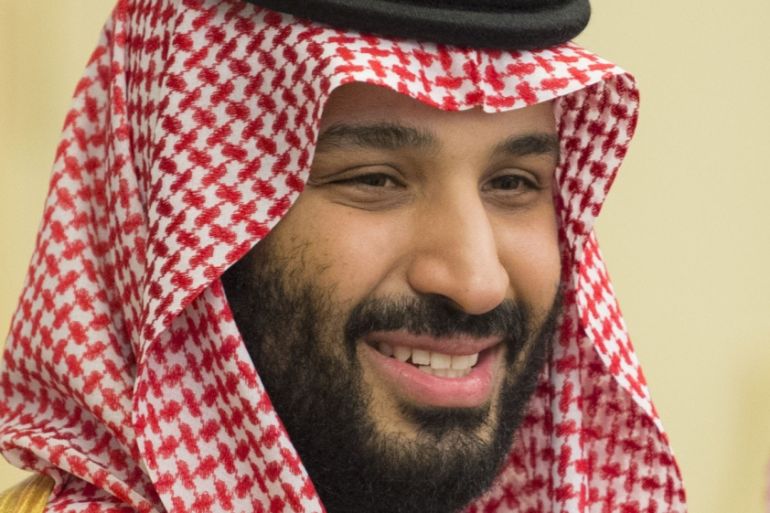Saudi Arabia ‘seeks death penalty’ for female activist
Israa al-Ghomgham documented demonstrations in the kingdom’s Eastern Province from 2011, before being arrested in 2015.

Saudi Arabia‘s public prosecutor is seeking the death penalty for five human rights activists who are currently being tried by the country’s terrorism tribunal, according to rights groups.
Among the detainees is Israa al-Ghomgham, who Saudi activists say is the first woman to face capital punishment for human rights-related work.
Keep reading
list of 4 itemsMSF suspends work in Haiti emergency centre after armed group kills patient
‘It gave me a purpose’: Surf therapy transforms lives in South Africa
British-Ghanaian boxer Joshua Buatsi: ‘I can’t be the only one benefitting’
Human Rights Watch (HRW) said in a statement on Tuesday the charges against the activists “do not resemble recogniseable crimes” and include “incitement to protest”, “chanting slogans hostile to the regime” and “providing moral support to rioters”.
Authorities have held the five activists, along with another not facing the death penalty, in pretrial detention without legal representation for more than two years.
They are due to appear in court again on October 28, according to HRW.
“Any execution is appalling, but seeking the death penalty for activists like Israa al-Ghomgham, who are not even accused of violent behaviour, is monstrous,” said Sarah Leah Whitson, Middle East director at HRW.
ALQST, a UK-based group advocating for human rights in Saudi Arabia, previously reported the public prosecutor’s decision on Twitter on Sunday.
The rights group also denied social media reports that the detainees had already been executed, saying the case was “still under review.”
URGENT NEWS:#Saudi_Arabia's Public Prosecutor is calling for the death penalty for #Israa_al_Ghamgham for her involvement in peaceful rights activism. The case is still under review. ALQST is calling for the charges to be dropped and for Israa to be released.
— القسط لحقوق الإنسان (@ALQST_ORG) August 19, 2018
A prominent activist, al-Ghomgham documented mass demonstrations in the kingdom’s Eastern Province from 2011, before being arrested along with her husband in 2015.
Ghomgham and the other activists are being tried by Saudi Arabia’s Specialized Criminal Court (SCC), which was set up in 2008 to try terrorism cases and has since been used to prosecute peaceful dissidents, according to HRW.
Social reform
A deeply conservative absolute monarchy where public protests and political parties are banned, Saudi Arabia has enacted some high-profile social and economic reforms since Mohammed bin Salman became crown prince in June 2017.
Bin Salman has courted Western partners to support his economic reform plan, offering billions of dollars of arms sales and promising to modernise the kingdom.
In September 2017, King Salman bin Abdulaziz al-Saud signed a royal degree lifting the ban on women driving and greater participation in the public sphere was opened up to women.
This has coincided with ongoing arrests of prominent Saudi women’s rights activists who had publicly advocated for gender equality, the right for women to drive and an end to the country’s male guardianship system, which threaten Bin Salman’s image as a reformer.
At least 13 women have been arrested since May. While a number have been released, nine remain held without charge.
“Every day, the Saudi monarchy’s unrestrained despotism makes it harder for its public relations teams to spin the fairy tale of ‘reform’ to allies and international business,” said Whitson.
“If the Crown Prince is truly serious about reform, he should immediately step in to ensure no activist is unjustly detained for his or her human-rights work”.